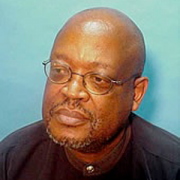The small village of Mzimkhulu, in the Transkei region of South Africa, was already divided along racial lines when I was born, in 1948. This is a significant year in the history of South Africa. It was the year in which the all-white Nationalist Party came into power, entrenching the laws of Apartheid.
Therefore, from an early age I grew up in a culturally divided country, in which I had limited contact with other racial groups, especially Whites, with whom interaction was mostly clouded by suspicion and hatred. In consequence it took me a long time to rid myself of the racial prejudice that I had involuntarily acquired during my developmental years, during which the primary and secondary schools that I attended were exclusively African.
My introduction to transcultural influence occurred during my experience as a medical student amongst Coloured and Indian classmates at the University of Natal.
It wasn’t until my post-graduate studies, at about age forty, that I was able to develop a meaningful relationship with my White colleagues, an interaction which increased with time and led me to realise that my preconceptions and prejudices about White South Africans were misinformed.
This has led to my studies of other cultures, to my interest in cultural psychiatry and to my travels worldwide to widen my horizons.
It was during my time as a registrar at the Whites-only Townhill Hospital, that I had an intense interaction with White patients.
I remember one, a 28 year-old university student, who refused to be examined by me. He said in Afrikaans, “I won’t be examined by a black man. I am AWB” (an extremely right-wing White Afrikaans political organisation). I responded by saying “I am ANC”, which at that time was the feared, and banned, South African resistance political organisation headed by Nelson Mandela. After that encounter, he developed a respect for me (I am not sure whether it was based on fear) and I never had any more problems with him, or with other White patients.
My career interest in psychiatry began in the late 1970’s, when I was a general practitioner doing sessional work at Mzimkhulu Mental Hospital. This was an institution caring for over 500 patients; with no psychiatrist. Through that experience, I saw the need to specialise, with the intention of fulfilling the role of psychiatrist at Mzimkhulu Mental Hospital, where there was such manifest need. However this was not to be, because after qualifying as a psychiatrist, I was appointed by the University of Transkei to start the Department of Psychiatry there.
My interest in cultural psychiatry, local and global, blossomed whilst doing my post-graduate studies under the mentorship of Professor W H Wessels. I was fascinated by this white person who was teaching me about my own culture and its relationship to psychiatry.
My contribution to cultural psychiatry includes a review article in the South African Medical Journal on ‘Amafufunyane – a culture-bound syndrome’, and I have given a number of presentations, both nationally and internationally, on African psychiatry and psychotherapy. My academic work includes studies of traditional healing methods, and integration of (indigenous) African health systems with Western health systems.
As my retirement approaches, I intend devoting much more time to this subject, with a view to writing a book on cultural psychiatry relevant to South Africa.
This journey would not have been possible without the support of my wife, Lungi, and our three lovely children, Lwazi, Lundelwa and Zamakhize.
July 5, 2007

